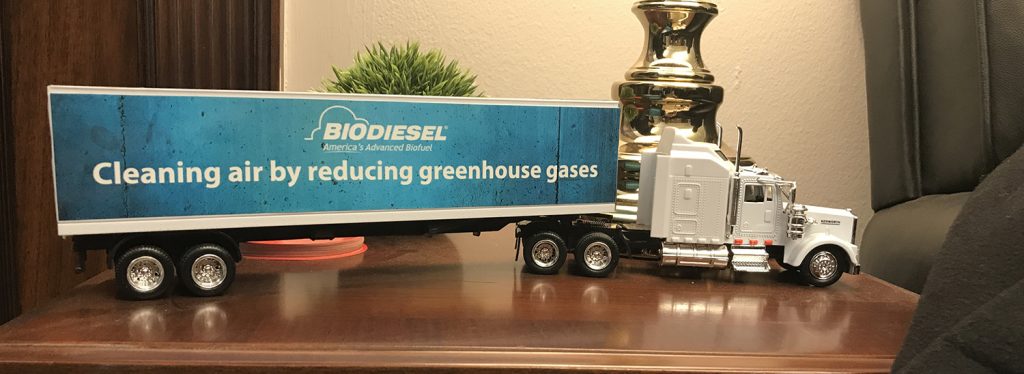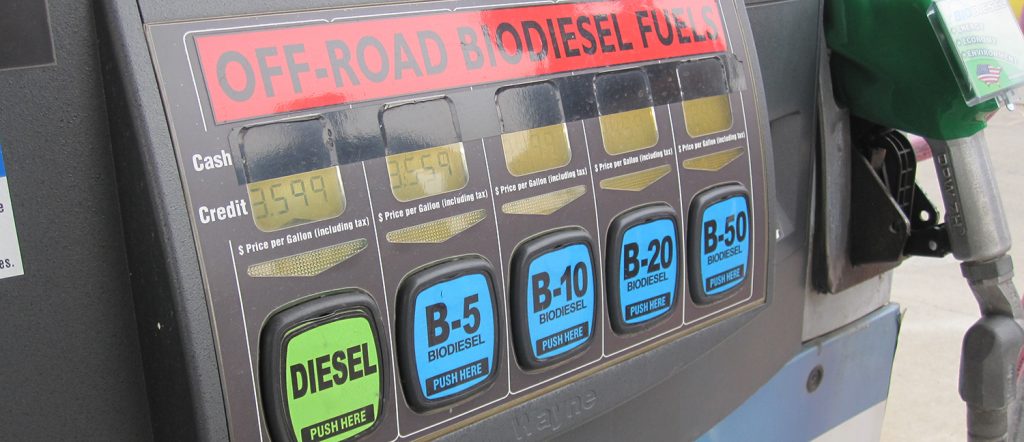A federal judge in Minnesota has stayed an ongoing lawsuit involving the Minnesota Soybean Growers Association (MSGA) that challenges the state’s adoption of California’s zero-emission vehicle mandate.
“First, the federal emissions standards that are comparably stringent to the ones Minnesota adopted, which the plaintiffs do not challenge in this case, will result in similar harms to the plaintiffs in Minnesota,” U.S. District Judge Katherine Menendez wrote in her order. “Second, the reality of the lead time of the auto manufacturing industry means that a temporary stay from this court is unlikely to result in any incremental injury to plaintiffs because they admitted in their complaint that as of March 2023, ‘automakers either already have finalized or will imminently finalize, their production and sales plans for their model year 2025 vehicles.’ Thus, staying this case pending a decision from the D.C. Circuit in Ohio v. EPA will have little, if any, impact on injuries traceable to model year 2025 vehicles, which are the first set of vehicles that will be affected when Minnesota’s rules to take effect in January 2024.”
The case is now pending in the U.S. Court of Appeals in Washington, D.C., and similar lawsuits against the EPA are pending in multiple states.
“We aren’t surprised by the decision and we are confident in the merits of our case,” MSGA Executive Director Joe Smentek said. “This decision is common and wasn’t a comment on the merits, and it’s also important to note that this is not a dismissal of our case.”
In March, MSGA joined the Minnesota Service Station & Convenience Store Association and NACS, Clean Fuels Development Coalition and ICM Inc., in filing a lawsuit to uphold the integrity of the Renewable Fuel Standard. MSGA is determined to ensure the concerns of Minnesota’s 27,000 soybean farmers are heard and addressed by state leaders. The lawsuit, filed in the U.S. District Court for the District of Minnesota, challenges the legality of Minnesota Pollution Control Agency rules requiring that new cars, light-duty trucks and medium-duty vehicles in the state meet emission limits set by California and match California’s requirements for the sale of a certain percentage of so-called “zero-emission vehicles,” as defined by California regulators.
The lawsuit contends that the federal Energy Policy and Conservation Act (EPCA), which creates a uniform national standard for vehicle fuel efficiency, prohibits states from adopting policies “related to” federal fuel-economy standards. EPCA says that a “State or a political subdivision of a State” cannot “adopt or enforce a law or regulation related to fuel economy standards or average fuel economy standards.”
In EPCA, Congress expressly forbade the National Highway Safety Administration from considering the fuel economy of vehicles that run on “alternative fuels” (such as electricity) in setting fuel-economy standards, according to the lawsuit. The suit also challenges Congress’s decision to grant California – and only California – special authority to adopt its own motor-vehicle emission standards different from those set by the U.S. government.
“The state shouldn’t let California tell Minnesotans what kinds of cars they can and can’t buy,” said Lance Klatt, executive director of the Minnesota Service Station & Convenience Store Association.
The policy, the lawsuit contends, violates the Constitution’s equal sovereignty doctrine because it grants California a greater degree of sovereignty and capacity for self-government than all other states.
In Minnesota, biodiesel is helping to grow the economy. About $1.7 billion of Minnesota’s GDP comes from the biodiesel industry and biodiesel supports nearly 5,400 jobs in the state and 65,000 jobs in the U.S., increasing the value of every bushel of soybeans by nearly $2.
Aside from economic benefits, the biodiesel industry helps protect the environment – a growing concern in today’s world. Studies show that biodiesel reduces greenhouse gas emissions by more than 50% and displaces roughly 130 million gallons of petroleum diesel in Minnesota each year. Using a B20 blend in the summer and a B5 blend in the winter equates to removing the emissions from approximately a quarter-million vehicles each year.







